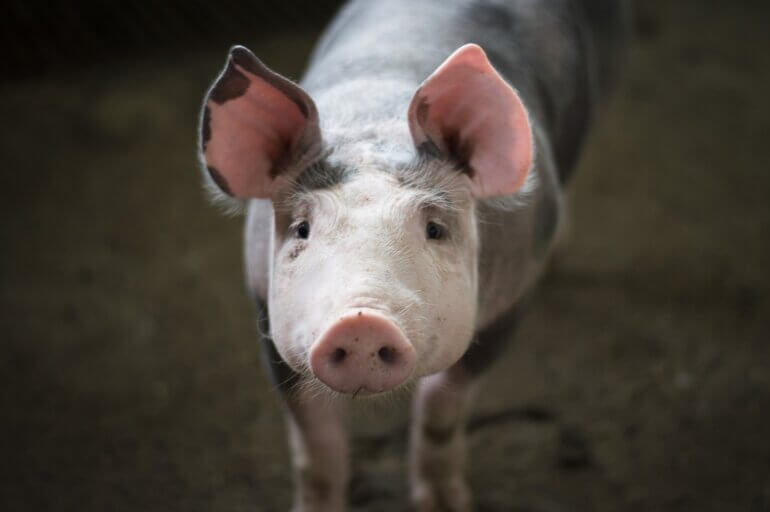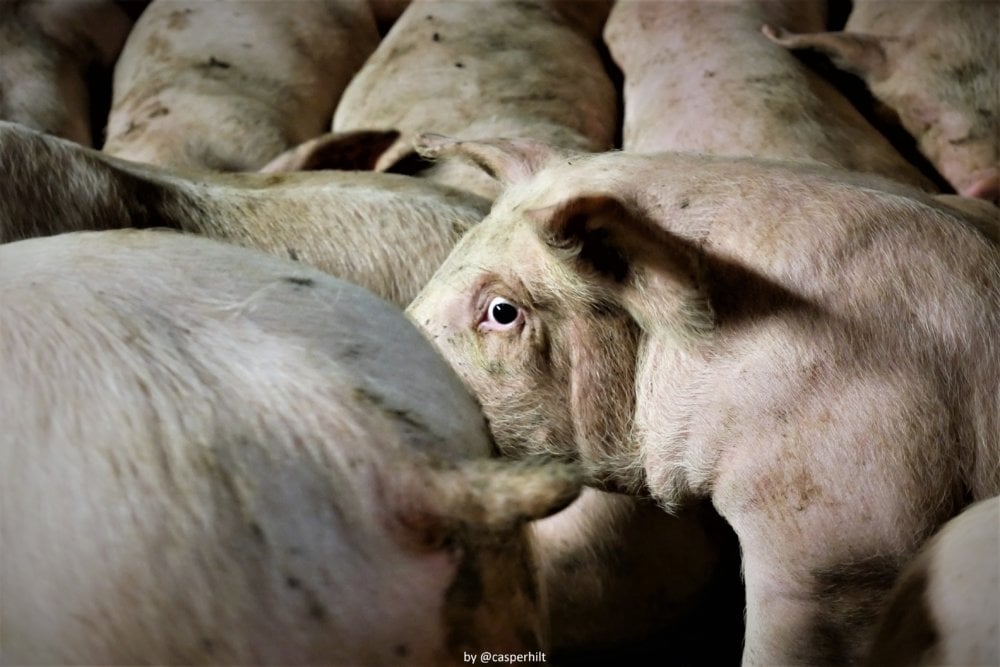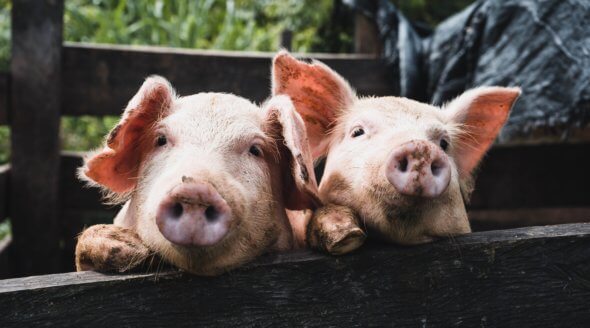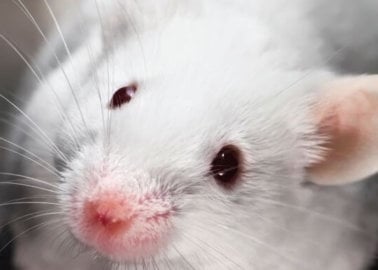Victory! Doncaster Council Rejects Pig Farm
PETA is celebrating Doncaster Council’s decision to reject a planning application for an enormous pig farm in Sprotbrough that, if approved, would have seen almost 3,000 pigs a year kept in conditions that would cause psychological and physical suffering before being sent to slaughter.

The proposed facility would have seen nearly 1,000 pigs at a time crammed into a small building, where they wouldn’t have been able to breathe fresh air or see daylight.
After receiving a huge number of objections from local residents and councillors as well as a letter from PETA – signed by over 22,000 of our supporters – the council ruled in our favour and rejected the application!
Thank you to everyone who signed the petition and helped oppose these cruel plans.
Why We Petitioned Against This Application
The pigs on this farm would have spent their short lives in a building that would have given them only around a square metre of space each – roughly the size of a fridge. They would have been denied the opportunity to express any natural behaviour, like foraging and rooting for food, and would have had nothing to stimulate their sharp minds.

The stress and frustration of extreme confinement can drive pigs to engage in aggressive behaviour such as tail-biting, so farmers routinely cut off their tails and clip or grind down their sensitive teeth, often without painkillers.
The pigs would have reached “finishing weight” when they were just 20 to 24 weeks old – at which point they would have been packed onto a lorry and sent to the abattoir. At the end of this terrifying journey, pigs are typically stunned with electric tongs or suffocated with carbon dioxide in a gas chamber before their throats are slit and they’re left to bleed out.
We Don’t Need Another Animal Farm
In addition to the negative impact the farm would have had on local residents because of the noise and odour it would’ve generated, it’s important to remember that cramming animals together on filthy facilities can also have a negative impact globally.
When animals are forced to live in filthy facilities soaked with blood, urine, and other bodily fluids, deadly pathogens can emerge and spread from animals to humans – as was the case in the 2009 swine flu pandemic.
To keep animals alive in dirty, disease-ridden conditions that would otherwise kill them, 75% of the world’s antibiotics are now used non-therapeutically on farms. Experts believe that by 2050, more people will die of antibiotic-resistant diseases than currently die of cancer.
What’s Next?
We’ll continue to speak out against animal farms such as this one. If you want to add your name to our future petitions, subscribe to our e-news to be the first to hear of them:




